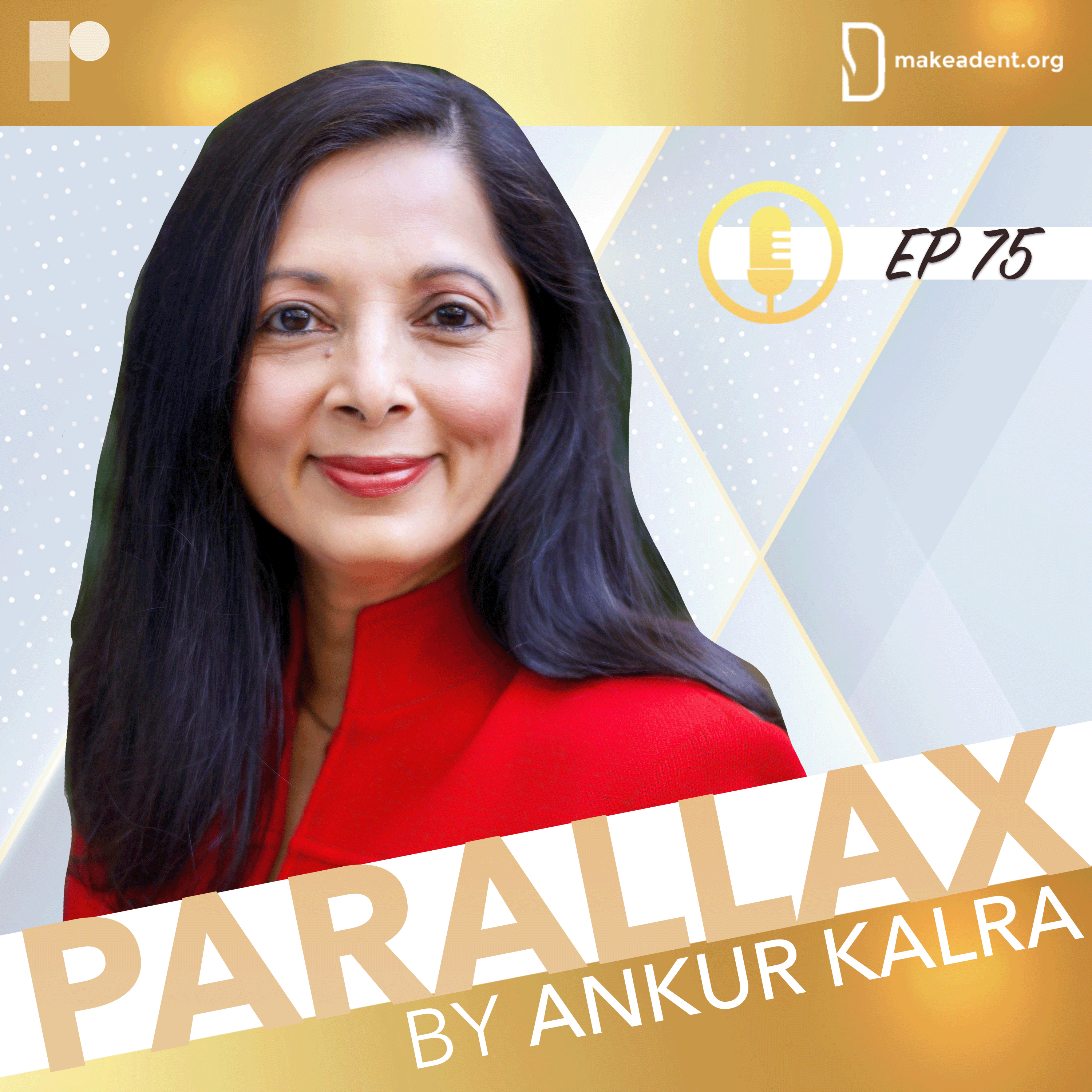
Dr Dipti Itchhaporia, 70th President of the American College of Cardiology (ACC), always met her fears with actions. One of her motivations to become a cardiologist was to be able to act in the face of acute situations. When Dr Itchhaporia, the fifth woman and the first of South Asian descent to fill in this position, was asked to summarise her presidential year, she answered: flourishing in opposition of languishing.
Dr Ankur Kalra’s guest in this episode of Parallax is Dr Dipti Itchhaporia, ACC Immediate-Past President, an interventional cardiologist and the Eric and Sheila Samson Endowed Chair in Cardiovascular Health, director of disease management for Hoag Heart and Vascular Institute, and associate professor at the University of California, School of Medicine.
In this personal interview, Dr Itchhaporia recalls her early years and the influences and decisions that led her to medicine and cardiology. She talks about her connection to ACC and the importance of choosing a professional home where one can find their purpose under the mentorship of their community. Ankur asks Dr Itchhaporia about the most memorable moments of her presidency. They talk about South Asian identity and curbing CVD in this population.
How does Dr Itchhaporia think about representation and the meaning of her historical position at ACC? What is Dr Itchhaporia’s message to women in cardiology?
Questions and comments can be sent to “podcast@radcliffe-group.com” and may be answered by Ankur in the next episode. Guest, @ditchhaporia hosted by @AnkurKalraMD. Produced by @RadcliffeCARDIO.
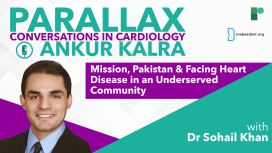
Dr Khan talks about education in the US and his decision to move back to Pakistan. Ankur asks Sohail about his new professional home: NICVD, a free clinic providing primary heartcare for Pakistanis. They discuss some of the innovations Dr Khan works on to improve patient care that utilise simple but effective interventions. We learn more about free screening clinics and about Dr Khan’s work on the largest ever study in Pakistan on association of Lpa and CV disease in South Asians.
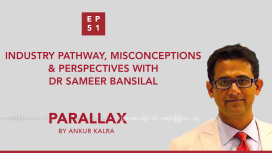
Dr. Bansilal was an Assistant Professor of Medicine at the Icahn School of Medicine at Mount Sinai when he decided to seek an alternative pathway to make an impact on patients’ lives.
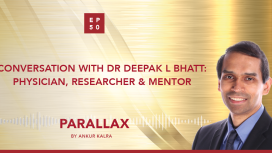
In the 50th episode of Parallax, Dr. Ankur Kalra’s guest is Dr. Deepak L. Bhatt leading physician, researcher, lecturer, and educator who has authored or co-authored over 1650 publications and was recipient of the ACC’s Distinguished Mentor Award in 2018 and AHA’s Distinguished Scientist Award in 2019.
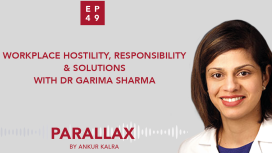
The American College of Cardiology surveyed cardiologists across the globe to have a more detailed understanding on the impact of hostility, discrimination, and harassment in the workplace. Of almost 6000 cardiologists who took part in the survey 44% reported hostile work environment.
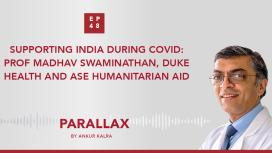
In this week's latest podcast episode, host, Ankur Kalra, MD, meets guest Prof Madhav Swaminathan (Duke University Health System, NC, US) to discuss how he has orchestrated a major humanitarian effort, in association with Duke University Health and The American Society of Echocardiography, to supply ventilation equipment and PPE to hospitals and NGOs during the current COVID-19 crisis in New Delhi, India.
Hear them discuss the challenges and learnings associated with the supply chain, inventory, logistics and cost to deliver this humanitarian effort; which most recently resulted in $140,000 of life-changing equipment being delivered to four key hospitals in New Delhi. A most inspirational episode.
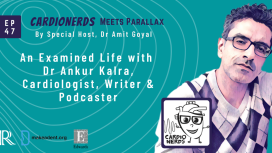
In this candid and spiritual conversation Amit and Ankur take a journey through former episodes of Parallax and Ankur’s writings to explore what it takes to strive for a deeper knowledge of ourselves; or, as Ankur puts it, dharma, the inherent order of reality.

Parallax’s guest this week is Dr Eric David Adler, Medical director of heart transplant and mechanical circulatory support at UC San Diego Health.

How did Dr Gragossian receive her diagnosis? How does she feel about her new reality? What drives her? What is her message to our listeners?

Just after 9/11, Heval, the 18-year-old Syrian Kurdish refugee found a job as a dishwasher. At this point, he was the sole provider of his family. The pressure that comes from being poor did not leave him for many years. Today, he is firm believer in giving back to underserved communities by spreading awareness within the medical community. As he says, well-meaning people of privilege are sometimes afraid to act. What we need is more people to bridge the gap and find ways to help each other.

What drives Dr Nishtha Sodhi? What were the formative moments of Dr Sodhi’s career? What are the new frontiers of cardiology?







